Ep. 190: Board Meetings | How to Climb and Train Effectively with Different Level Climbers
I often hear climbers lament how difficult it is for them to climb or train with their partners who climb at a different level than they do. While I agree it can be hugely motivating to have a partner who is working on the same things that you are - who you can share beta and tactic ideas with - it's also 100% up to you to find the motivation to keep pushing when that partner doesn't materialize.
FULL EPISODE TRANSCRIPT:
Kris Hampton 00:31
What's up everybody? I'm your host, Kris Hampton.
Nate Drolet 00:34
And this is Nate Drolet.
Kris Hampton 00:36
And together, we form.... lobbing you a softball here.... Snoopy and Woodstock.
Nate Drolet 00:45
Peanuts. Good one.
Kris Hampton 00:47
Any idea why those two?
Nate Drolet 00:51
Because of different levels of partnership?
Kris Hampton 00:54
Yeah, basically,
Nate Drolet 00:55
Who's the superior?
Kris Hampton 00:57
That's a good question. They're definitely different levels of intellect. But I'm not sure who the top dog is there. No pun intended. Yeah, and this one was kind of your, your topic, based on an episode during the beginning of the COVID pandemic, when lockdown first hit
Nate Drolet 01:25
Yeah.
Kris Hampton 01:25
So tell me about how this one kind of came about in your mind.
Nate Drolet 01:30
So you were talking about this was on the motivation podcast, which I think came out in April. And you were at one point talking about how you, and Sarah and Taylor, your previous partners from back in Cincinnati, who you've talked about a bunch, how y'all would plan out your season. How you were very tactical and all three of you climbed very different levels, especially initially. It was, you know, kind of like 5.13 plus, like 5.13, and then 5.12, and some are even skewed differently. You know, back during that time, I was climbing in the Red a bunch, and I would always see y'all. Man, I would be climbing and I would see y'all motor into the crag, just, you know, knock out some pitches real quick. And you're like, "Okay, bye. Going to another crag."
Kris Hampton 02:16
Oh, yeah, we were on the move.
Nate Drolet 02:18
And it was so cool. Like, I you know, I closed down the crag pretty often, but I feel like anytime I did, like, if y'all were at the crag, y'all were there just as late, like or later. You know, and that was, you know, it was always cool to see that firsthand, firsthand. Because that was the first time I feel like we really spent time around each other. So that was cool to see that firsthand, just y'all's initiative. And then during this episode, you kind of talked about some of the more some of the more tactical approaches that you used for that. And I thought that was awesome. You know, I meet a bunch of people who their main climbing partners are at very different levels. And that can be a real struggle in climbing.
Kris Hampton 03:01
Yeah
Nate Drolet 03:01
Like, it can cause a lot of conflict. You see that, especially in relationships, where it's a big gap between levels.
Kris Hampton 03:09
Yeah.
Nate Drolet 03:10
And I mean, there's already a lot to maneuver when you're climbing with your significant other. But if there's also a big gap in your performance levels, that can make it really hard. And if you're not planning for it, if you're not communicating well, man it...ah...yeah, it's challenging. And you can kind of make those people's climbing days or seasons, you know, a lot worse or a lot better with how you plan.
Kris Hampton 03:39
Yeah, absolutely. You know, when, when you were seeing Sarah and Taylor and I, running around the Red like that, it was, it was a little bit out of necessity. Like, we all had goals. We all had things we really wanted to get done. We had put in all this work to get to those to the places where we could have a chance at these goals and to then go outside and just, you know, let let come what may didn't seem like a very good approach. And it was gonna become a shit show, with three people with different goals, trying to you know, and I'm not using this word in a bad way, but selfishly chase their own goals, you know. So we definitely explored quite a bit, how to plan, how to approach, what tactics to use. You know, we explored that quite a bit, to be able to have all three of us see success. And a lot of those things are, are things that I continue to use, whether I'm writing training plans plans for couples or training partners. I try to try to use the same ideas when going outside climbing with, with Annalissa or with other partners. And I think it just makes things smoother for everybody, which ends up being a better experience for everybody. You know, and we've got, we've got our kind of kind of three scenarios we're going to go through. So sort of, we're going to talk about how that looks in training, how it looks in bouldering, and how that looks in sport climbing. But first, I just want to kind of give a brief overview of some of the things we talked about in that motivation episode and kind of how it should look for you in all three of these things. There's some steps you should be taking, like, starting with macro planning and moving into micro planning. And what I mean there is like, the way Sarah and Taylor and I used to do it are write down all your goals. You know, what are your goals this season? What do you want to get done this season or next season? You know, put that list together. Now let's look at all three of our lists side by side and cross reference and say, "Okay, who's got routes at the same crag that they want to do? You know, whose which projects are good in the morning? Which projects are good in the afternoon? Which are good at the beginning of the season? Which are good at the end of the season?" And then you can start piecing days together. You know, once you have that big overview of what your whole season, your ideal whole season looks like, you can start piecing together your days. Like, you know, maybe Taylor has a project at the Motherlode that's good in the morning. And Sarah has a project at Drive By that's good in the afternoon, you know, and then maybe I want to climb on something in the evening at the Motherlode. So it makes good sense for us to go to Taylor's project first, him to be to take priority warming up. Then while he's taking his burns on the project, Sarah is warming up. Then we go to Drive By and while she's on her project, I'm warming up. And then we go back to the Motherlode and I can try my thing in the evening. You know, once you have the details laid out, it's really easy to decide what you're doing. And that just avoids a lot of fights, that avoids a lot of bad feelings. You know, it avoids excuses, frankly. You know, so I think it's just important to, to go through all those things, no matter what it is, training in the gym, bouldering season, sport climbing season, whatever. So go through all that planning, make sure you're doing it. If you wait until you roll up to the crag to decide what everybody's doing, most of you aren't gonna, gonna get done what you want to get done, you know.
Nate Drolet 08:25
Yeah, amd for anyone who's listening who thinks like, "Man, this is, this really strips a lot of the fun out of it", or, you know, "I would rather just, you know, kind of would rather kind of, or just go out and play it by ear or have what feels like a more relaxed approach", the cool thing about this is, even though it seems very stringent, initially upfront. Man it, honestly, it takes so much stress out of the equation. Because it's so often that you'll see people roll up to the crag, and they're like, "Well, I'd like to try and, you know, get on that thing today, but I don't know. My partner might be projecting." And you know, the day ends and neither person has had a good time like, or one person did, one didn't. And by figuring these things out early, you can be like, "Cool. I've got my four hours in the morning to try my project. Like, I already know what I'm doing." And you can really just lean into it and you don't feel guilty about thinking like "Oh, no, like, is my partner waiting too long?" or stuff like that. Like it putting this upfront work in allows you to enjoy your climbing and your seasons so much more.
Kris Hampton 09:36
Yeah, and you know, I hear the I hear the "Well that's takes the fun out of it" argument about all sorts of things. And for me, there's a lot of fun in this planning.
Nate Drolet 09:49
Yeah,
Kris Hampton 09:50
It's a great thing to keep you motivated in the offseason or when you're in training season or whatever. You get to spend all this time thinking and totally nerding out about your local climbing area where you're going to be or the place you're going on a trip or whatever it is. And I have a fuck ton of fun doing that. And then when I'm at the crag, I see all sorts of people who are like "I only climb for the fun of it" having really bad days at the crag because they didn't plan shit.
Nate Drolet 10:25
Yeah.
Kris Hampton 10:26
And now they're angry because they didn't get to try the thing they wanted to try that they didn't tell anyone they wanted to try until they got there. You know, and I'll take the do a little work up front and have more fun at the crag approach every single time.
Nate Drolet 10:41
Yeah.
Kris Hampton 10:42
So you can you can keep your "Takes all the fun out of it" excuse. Let's kind of talk about the three zones here, you know, training, sport climbing, bouldering. Start with training. As a as a coach having, you know, been coaching full time for a few years now, are there times when you have to put work in to, like, make sure training partners or or couples or, you know, you with your partner are training in a specific way and you have to plan that out ahead of time, you know, people who are in different different levels of climbing?
Nate Drolet 11:28
Yeah, absolutely. You know, I think there's so much value in looking at who you're climbing with and how that situation is. And if you're not planning for that, man, it's just, it's kind of guaranteed to backfire. Like, I'll, so with a lot of my clients if they will, like they'll tell me. Normally I say "Hey, what's your regular schedule?" And I often ask people who they climb with. And if someone says, "You know, every Tuesday, all my friends meet up at the gym, and we all climb. And it's a little more loose structured, but I really a lot out of that.", I'm like, "Cool. That's what you're doing."
Kris Hampton 12:09
Yeah,
Nate Drolet 12:09
And like, in what's pretty neat is, especially with good, like a lot of good and tight crews. I can help. I can be like, "Hey, can you convince them to get a few hangboard hangs in?" And, you know, and they'll be like, "Yeah, absolutely." And then they'll all you know, they do their same long, three hour session, but maybe they all do hangs together, something like that. And this one day, a week of being able to spend time with their friends is so beyond worth it. Like even if that's not air quote, like the "perfect" day, perfect training day.
Kris Hampton 12:39
Yeah, one of my clients, Tyler, who's been on the podcast before and started a group, Climb Malawi, over in Africa. And he, he was spending a lot of time outside of his normal climbing sessions, working with the kids who were learning to climb at Climb Malawi. And so I would build specific sessions, so that he gets to teach them drills he's been doing for a long time, you know, while he's doing them. And so that, they get to see a little bit of him trying things that are a little bit harder. You know, he he wanted sessions where it didn't feel like, "Oh, I'm being super selfish. I'm taking all this time for me." He wanted to help these kids, but then it's also helpful for the kids to see him trying things that are hard for him.
Nate Drolet 13:38
Absolutely.
Kris Hampton 13:38
You know. And I hear from a lot of people, when they start training, like, "Well, I train with my friends, and you know, this is gonna have to be separate from what we normally do." Not necessarily. You know, there's a lot that can get done in what looks like a pretty normal session for people, just as long as it's got an intention and a focus. And and I think you're just shorting yourself, ifyou think that training means you can't continue to climb with the people that you normally climb with, even if they're radically different levels from you.
Nate Drolet 14:21
Yeah.
Kris Hampton 14:22
You know, and sometimes I get clients who are, you know, these two training partners or this couple or whatever, wants to start training and, you know, the, the female partner climbs 5.13 And the male partner climbs, 5.11 or whatever, and they want to train together. They're each other's main partner. And there's definitely a way to make sure that they both get out of it, what they need. You might have to be a little bit creative as a coach or as someone who's writing the training plan, but it's definitely doable. And the good thing is you can, you can keep them together for 90% of it, because most of it's going to look like climbing. It's just going to be with a really specific intention or focus. And the other 10% 15% of their training might need to be, you know, "Oh, you're over on the hangboard, and you're lifting weights", or whatever, but the gym, most gyms in the country anyway, group those sections together. Like all the climbing happens here, all of the weightlifting, hangboarding stuff happens here. So it's pretty easy to make sure they're in the same zones and still get to hang out with each other and share psych and share encouragement, which is a massively important part of training and having a partnership of any kind.
Nate Drolet 16:00
Yeah. Yeah, and you know, and I think of all these, training is probably the easiest to line up different partners, or different ability levels, just because, you know, if you're in the gym, typically things are closer together. You can kind of climb in the same areas, you know, and it might be a little bit of push and pull, like, "Hey, we'll start at the 45, because that's what you're psyched on. And then we'll go over the 20, because that's what I'm psyched on." Yeah, things like that.
Kris Hampton 16:30
And you know, it, it can be tougher if your, like main training partner, if the person you really love to train with, share psych with is in a totally different city, state, whatever, you know, but it's still doable. To bring Tyler back into it, when he was in Malawi nd his partner who was on the podcast with him, Scott, was still in Cincinnati, they just shared a folder where they would send videos back and forth.
Nate Drolet 17:07
Oh that's awesome,
Kris Hampton 17:08
You know, stay super psyched for each other. You know, and I think having someone familiar with your climbing style, or with the area yet that you're training in, or whatever what your training goals are to share psych with is huge. And you know, when I the first time I did Pinky and the Brain, first try of a session, I messaged you about it.
Nate Drolet 17:34
Yeah
Kris Hampton 17:34
I messaged Zach about it. You know, no one was there training with me, so it may not have happened. But you both were psyched to see that it did happen. You know, I think it's big, just to have those people to share successes with.
Nate Drolet 17:52
Man, I agree so much. And that if you want to be a good training partner, regardless of someone's ability, be bought into what they're doing. You know, be just as psyched for them. Like, it doesn't matter if, you know, they're just trying to get their first 10 second hang on one pad edge, and they do it, sick. That's awesome. Like, whatever it is, man, having someone to share things with is so huge. Yeah, and, you know, if you're, if the person you're climbing with is much stronger than you, like, it's still like for them, those little progresses are still big and still important.
Kris Hampton 18:28
Yep,
Nate Drolet 18:29
Like, and even if it's not something that you at this moment can fully relate with, you know, still be psyched for them and show that like that's, I think, really important, like having that back and forth.
Kris Hampton 18:41
Yeah, I've even had training partners at different levels of needs, where one might need to be on ropes, you know. They need to spend time on lead. They need to be trying hard above a bolt, and the other has that dialed in. And will get far more out of bouldering. And it's a little tougher to do, but there's rest time involved in training, quite a bit of it. So in the rest periods between hard boulder attempts, you know, this person can go belay their partner, and you know, give them time on the route. And then while they're resting, there's more bouldering happening.
Nate Drolet 19:27
Oh, nice.
Kris Hampton 19:28
So it can work. You just have to be creative and willing to compromise a little bit. I think. I think that's one of the points of this is that there is no real balance of it. It's a little more of you're going to compromise here and there. And just learn to be okay with compromising, you know,
Nate Drolet 19:51
And the short term pain of calm of compromise, which might mean "Oh, I don't get quite as many goes on my boulder" or something like that. is offset 100 times over by the value of having good partner, like someone who is there, someone who's psyched for you, someone to help motivate you, someone who's just like, on your team. Man that is so huge and it, to me far outweighs anything that you could ever give up, you know, to be an equally good partner to them
Kris Hampton 20:24
. Yep. No matter what level they climb at
Nate Drolet 20:26
Yeah, like I look at all of my biggest levels of progression in climbing. And I can they always match up with, "Oh, I was climbing with this crew or this person. And we just like really jived and that, like, we pushed each other." And typically when I have those big progressions, it matches with when my partners were having big ones as well.
Kris Hampton 20:47
Yeah.
Nate Drolet 20:48
And yeah, like that kind of camaraderie, that back and forth is, to me so incredibly important.
Kris Hampton 20:54
Yeah, totally. I feel like you're going somewhere with the training is the easiest of the three to, to make work. Were you headed in a direction with that before I cut you off?
Nate Drolet 21:05
Um, mostly just that gyms are very compact. They're made to be very utilitarian. Like, you know, it's why you can get so much volume in there versus outdoors. So it's easy, I feel like it's easier to make things work in a gym. And same thing, if you're both lifting like, you know, I can bring my kettlebells over next to your barbell. Now we're training together. Like that's easy versus outdoors, you start having to deal with logistics a lot more.
Kris Hampton 21:33
Yep. Which do you think is the harder of the two, bouldering or sport climbing?
Nate Drolet 21:41
They're different in their own. Sport climbing is probably...I think sport climbing is harder, but bouldering people mess up more. Like bouldering I think is more low hanging fruit. But because there are so many options in a standard boulder field,
Kris Hampton 21:59
Right
Nate Drolet 22:00
People are even less likely to make a plan. Like if we're going sport climbing together, I'm going to tell you what I'm going to try before like before we get in the car probably
Kris Hampton 22:09
Right
Nate Drolet 22:09
We're gonna make a general plan even if not strict, if not months out. You know, even if it's just "Hey, let's go cragging today. I'm in town." Like we're gonna have a general plan. With bouldering it's like "Eh, let's go out to the boulder field and see what happens." And that doesn't always work out.
Kris Hampton 22:27
Right? Which direction do you want to go first then the one that's harder or the one that people mess up more?
Nate Drolet 22:34
Let's start with sport climbing.
Kris Hampton 22:36
Okay
Nate Drolet 22:36
Mostly cuz I have it written as training, sport and boulder so
Kris Hampton 22:40
Yeah, me too.
Nate Drolet 22:41
Okay, perfect
Kris Hampton 22:42
Haha
Nate Drolet 22:42
Nailed it
Kris Hampton 22:42
Works out. Yeah, I think with sport climbing, that planning like like you just alluded to, it's likely we'll already have talked about what's going to happen. But it's not likely for everybody. Lots of people do go sport climbing with this, "I don't know yet. Let's see where we end up." As if magically the universe is just going to lead you to the crag where everyone wants to go.
Nate Drolet 23:09
Yeah, I think that's what the book The Secret was about.
Kris Hampton 23:12
It very well could be
Nate Drolet 23:13
Could be
Kris Hampton 23:14
We could we could write a climbing version of that and sell it
Nate Drolet 23:17
The Secret Crag
Kris Hampton 23:18
Haha and so I think planning is imperative to successful partnerships with a variety of abilities, when sport climbing. More so than then bouldering even. You have to get like super detailed plans with conditions, with with everything. I mean, even down to like, what gear do we have to carry to the crags. If we're going to be three cragging it today, what gear do I need for this first hike versus what gear do I need for the second hike versus for the third hike?
Nate Drolet 24:03
Yeah,
Kris Hampton 24:03
You know, we would pack our bags, repack our our bags in between each crag because I don't want to hike up with my whole days worth of shit to crag number one if I'm barely even going to climb there.
Nate Drolet 24:16
Yeah. Do I need a whole rack of draws if I'm going to the Motherlode? No.
Kris Hampton 24:20
Right. So things like that. Get as detailed as possible in your planning. I think you have to.
Nate Drolet 24:28
You know and something that... a mistake I see made is when people make their plans. For some reason, like the discussion of "Hey, let's get on this" will come up. But the discussion of "I want to do eight..". let's say I want to do eight, 5.12s and you want to try one 13c, those two things might not line up. Because you might take an hour on every you know on your first burn and each burn after might be considerably shorter. But if I just want to do eight 5.12s, it's gonna take me you know, 5-10 minutes apiece. Like, and that might not line up. But if we, if that was what we wanted to do, maybe I'll do two routes to every one of your one. But if we don't have this conversation ahead of time, we find ourselves halfway through the day and maybe you're not getting enough rest for the 13C, and I feel like I'm not climbing enough routes in between, and that can cause problems
Kris Hampton 25:22
Yeah, plan out the whole flow of the day
Nate Drolet 25:25
. Yeah,
Kris Hampton 25:26
You know, down to, "I'm going to warm up doing this route this many times, then I'm going to go try the project, then you can start warming up", you know, and have the whole damn thing planned out. Don't leave it to, to chance or hope, you know. It's unlikely for it to work out if it's just on hope.
Nate Drolet 25:50
Yeah.
Kris Hampton 25:51
You know, one of the one of the biggest mistakes that I see happen, and this is a really tough one to avoid for a lot of people. And I've been guilty of falling into this trap myself is kind of this guiding trap, where you know, you're the strongest person out of your group. So you end up rope gunning all day, you know, hanging draws and setting up top ropes, and then when that person couldn't get to the top, you then have to go clean it and. Or going out with partners who you haven't taught to clean, so that you have to follow and clean everything after they've climbed it. You know, and while it's a really nice way to teach people and way to go about things and and maybe you're doing it to create a partnership that will be more equal down the road, it really can tank your whole day if you're spending a bunch of energy, skin on, on easy to moderate things for you. And then you never end up with time to get on the thing that you really wanted to try.
Nate Drolet 27:06
Yeah, no, absolutely. I mean, that's as far as like big red flags, things I see that go wrong, that's a huge one for sure. You know, rope gunning.
Kris Hampton 27:16
Do you have something you you tell clients who end up in that position a lot? How do you talk to those people?
Nate Drolet 27:23
Depending on who it is, and how often it comes up, you know, if it's one of those things like hey, you know, they climb with someone once a month, and that that's just gonna be a rope gunning day. If that if they're psyched on that, that's totally fine. You know, and but if it's something that happens frequently, you know taking steps to making sure you're at least taking steps to move forward. Like, is this person getting more comfortable on lead? Are they learning how to clean their own routes?
Kris Hampton 27:55
Yeah,
Nate Drolet 27:55
All these different things. Plus, I mean, that's just great for the other person too. Like, no one wants to feel like, you know, nothing's worse than being like, "Oh, like, I'm at the crag. But I need someone to put a top rope up for me" or like,
Kris Hampton 28:08
Right
Nate Drolet 28:09
"Oh, I can't get on something else because like, I need someone to clean this for me" or things like that. Like, you know, the faster you learn those things and learn how to do them well, like you know, the more you have, the more you get to do things on your own and the more options are open to you.
Kris Hampton 28:25
Yeah, and, you know, when I've found myself in that position, from time to time, where I know I'm taking out some friends or group of people who are going to expect to have ropes hung up for them or need to have anchors cleaned for them. I'll, I've paid attention at this point and I'll I'll go to a place where I know that I can climb one route, and then trail rope behind me and I can traverse over five feet to the anchors of another route and hang a rope there. And then I can traverse back left five feet, and I can hang another rope there. And yeah, you know, I've got three routes hung up. And a lot of anchor setups will allow you to set up your own gear for people to top rope through but do it in such a way that it's already run through the anchors so that all they have to do a remove a couple quick draws. They're on the anchors already and they can just lower down. And if that's a possibility, set that up too. You know, make it as easy as possible for yourself. And just to give the disclaimer, don't try to just set up an anchor situation like that if you have no idea what I'm talking about,
Nate Drolet 29:44
Yeah
Kris Hampton 29:45
You know, do what you're comfortable with. But there are ways to make that situation easier. And and ultimately I end up telling a lot of people you're just gonna have to be selfish once in a while. You know maybe it's a trading days situation, which I think in sport climbing can be a really fantastic way to go about it if you have partners with drastically different abilities or drastically different goals. You know, if you're a weekend warrior, Saturday is my big day to try hard. Sunday is your big day to try hard. You know, that doesn't mean one of those days has to be a belay only day. But you're then at the mercy of the person whose day it is and you can, you can climb what's around there, if you want. And then if you take that approach, I would suggest flip flopping weekends. So that it's my big day is Saturday, week one, my big day is Sunday, week, two. That way, twice a month, each person gets to have the first day out be their big day so that they can do more volume and not worry about I might be wrecking myself for day two, you know. So you have to be a little selfish sometimes and just say, "Hey, this is I need to get this done." And if you've done that enough, it becomes trading back and forth with your partner. Your partner has said it. You've given your day to them. Now turn about is fairplay. You can ask for the same thing from them. And you know, that happened a lot when I was climbing with Taylor and Sarah. And we just had these amazing seasons together where we get so much done. If somebody was really close on something, the other people would be like, "Okay, it is your day, you know, this is perfect conditions for your project. Let's make sure we get you there. That's priority today. You know, anything else is icing." And that's fostered by by you doing the same for them.
Nate Drolet 31:55
Yeah. Yeah, no, I totally agree. And I, you know, I can't stress enough just good communication, like, what you're looking for, like man, and that goes such a long way.
Kris Hampton 32:08
Yeah.
Nate Drolet 32:09
So yeah, I think that covers a lot with sport climbing,
Kris Hampton 32:12
Boulders
Nate Drolet 32:13
Boulders
Kris Hampton 32:14
More people get it wrong. Why?
Nate Drolet 32:16
Oh, because there's so many options, and you typically have more people. So bouldering is really awesome, because it's much more fluid with the amount of time you need, or that you can spend on one thing, and how mobile you can be around with other boulders. So for instance, we might go warm up in the same couple of boulders, and then we'll go to your boulder for, you know, 30 minutes or an hour. And then we can go to mine for a little while. If you're close, we can go back. We can kind of keep switching back and forth. There are things we can climb on together. Like maybe if I'm climbing with someone who climbs a lot harder than me, I might be trying to stand start to a problem that they want to do a sit start to. There are a lot of options. You can make things work really well. But because there are so many options, what tends to happen, and especially when you have groups of you know, five, six people, is you try and find these middle grounds where no one is happy.
Kris Hampton 33:15
Haha. Yeah.
Nate Drolet 33:18
And man, there's just so many ways to do it wrong with bouldering.
Kris Hampton 33:21
Yeah, totally. And, you know, the fact that there are that many options, especially if you're in a newish boulder field, your goal may not be "I want to climb every single boulder I see." But it's really easy to fall into that trap of like, "Oh I'm gonna, I'm going to do every boulder we stop at on the way to the thing I really want to try. And by the time I get there, my fingertips are bleeding. And I can't really try the thing I really wanted." I see that all the time.
Nate Drolet 33:53
Yeah, it's very, very common.
Kris Hampton 33:56
And I think you just have to exercise some real patience. bouldering. You know, whereas sport climbing sort of forces you into exercising patience, because you're on belay.
Nate Drolet 34:07
Yep.
Kris Hampton 34:08
Bouldering you're just sitting there. And it's, it's really challenging to just sit there when there's a cool boulder in front of you, even if it's not your goal for the day.
Nate Drolet 34:19
Yeah.
Kris Hampton 34:19
So being more patient is key for the boulder to succeed when you're climbing with partners who were, you know, different abilities and going to other things.
Nate Drolet 34:31
Yeah, yeah, it might be tempting to just climb everything around. Which is just a good way to get wrecked. And vice versa, if you are resting, you're like, "Hey, I'm going to wait and rest for my boulder.", there are a few things I think are really important to do. One is figure out how to stay warm. Because if you're bouldering chances are it might be cold. That's normal bouldering temperatures. So figure out how to stay warm, and if you do get cold, how to warm back up for climbing. Man, I can't tell you how How many times I've seen it to where, you know, people will hang out at someone's boulder for an hour or two. And then when it's their turn, they're like, "Well, I'm freezing, like, I'm no longer warmed up." And they have this kind of defeated attitude, like "My day is ruined."
Kris Hampton 34:31
Yeah,
Nate Drolet 34:31
It's like, hey, like, you know, plan ahead. Like know that you're probably going to get cold. Like, maybe climb a few easy moves now and then. Or just know, you're gonna get cold and say, "Okay, I'm gonna go jog a bit. I'll do jumping jacks. I'm going to do the easier moves. Maybe I'll just do the top out of my boulder. And I'm just going to re warm up. It won't take me as long as the initial warm up." Like, it's not awesome to have to be warm up. And sometimes, but sometimes you have to do it a couple times a day. Like, that's just how it is. And once again, it's still going to work out better doing that, than just only going on your own. Like, the power of having partners and good partners is just so strong.
Kris Hampton 35:53
Yeah. And, you know, I think a lot of what we're suggesting, as far as tactics, ends up assuming that, that you're the stronger person in the group and you're waiting for someone to finish at an easier boulder. It can be harder sometimes if you're the the person climbing the lower grades in the group, and you're at a boulder where it's only got something really hard on it, and you're waiting to go to your thing, you know. I.... you don't...A, you don't have to climb boulders to warm up. There are other ways. You know, you can just hang on holds. You can hold yourself in positions. You like you said, you can do jumping jacks, you can jog around. There's probably going to be some sort of rock nearby, even if it's not an established boulder problem that you can play around on. That's a great way to warm up. You know, there are, there have often been times where I'm at a boulder that doesn't have anything hard enough for me to get really warmed up for a project and I'll make up weird eliminates or, you know, things that aren't ...that no one else will ever repeat. Just these weird ass moves, you know, six inches off the ground. And just to get myself warmed up and ready to try hard when I do get to the project. So be creative. It's you've got this entire giant canvas out there that you're allowed to be creative on. You don't have to stick to what the guidebook tells you.
Nate Drolet 37:43
Totally. So yeah. And that's a man, I think, especially for eliminates while warming up. that's something I've come up people who've been climbing, you know, as long as me like 15,16 years, and they'll see me doing eliminates on warm ups and they are like "What are you doing?" I'm like, "Well, I'm just grabbing the smaller hold so that I get more warm." And they are like, "Huh, I never thought of that."
Kris Hampton 38:05
Haha. Right
Nate Drolet 38:06
It's like, "Yeah, like, you know, well, there's just this one, V1 here. But if I grab those holds, it's like V4. I could probably grab half of them and it would be V6.. Like, I'm just gonna keep doing this because I want to go try that V11 around the corner. And this is what I have available."
Kris Hampton 38:23
Yeah, exactly. And that goes both directions. You know,, you can you can only do the easy part of a hard boulder, if you are just looking to warm up and and the boulder you're at is, you know, still something in the future for you.
Nate Drolet 38:39
Yeah.
Kris Hampton 38:42
While I don't see the like, guide issue that I do with sport climbing with bouldering, I, there is one thing I see pretty often. And I've definitely fallen into this trap of if I'm the stronger climber and I go out with Annalissa or someone else and they're trying a boulder that I've done and I can and I can do relatively easily, I might end up climbing that boulder 30 times, you know while hanging out there. I like it. It's fun. They want to see beta. I want to play around with different beta. And I end up having this high volume day on one boulder, way before I get to my project.
Nate Drolet 39:35
Yeah.
Kris Hampton 39:36
And something I've learned in this past year that I tried to take advantage of is I just keep videos of the moderates on my phone or I'll video myself the first time. That way I don't repeat it over and over. Instead of somebody like "Oh, how do you do this move exactly? I'm not really I'm not understanding what to do with my hips right here." I don't have to go, "I don't know. Let me see. Let me try it and see." I can pull out the video and go "Oh, hey, here, this is exactly what happens."
Nate Drolet 40:09
Yeah,
Kris Hampton 40:10
You know, and that way, I'm making sure I'm staying rested for the hard project.
Nate Drolet 40:17
Yeah. So you know, and that brings, brings us to another point. If you're going to be a good partner, while bouldering man, like, I call it being support staff. Like if you're trying to boulder, let's say that maybe I've already done and we're hanging out, like, I'm going to be brushing holds. I'm
Kris Hampton 40:33
Absolutely
Nate Drolet 40:34
I'm making sure the pads are lined up. If I have to drag a path for you, I'm doing that. And like, you know, I might video you. Like I am like, we're on the same team, as far as I'm concerned. Like, yeah, you sending is us sending
Kris Hampton 40:45
Yep.
Nate Drolet 40:45
And that is like, that's how I like to boulder. Like, you know, if I have a partner, like if we were out climbing, and I'm trying something and let's say you've already done it. You know, I'd be bummed if I turn around and you're just like hanging out on Instagram, like, not even paying attention. Like, you know, it's so much more fun when you have that camaraderie.
Kris Hampton 41:03
Yeah.
Nate Drolet 41:03
And we don't have to be climbing together on the same boulder to have that camaraderie.
Kris Hampton 41:08
Yeah, and it doesn't have to be "I'm just shouting beta at you the whole time."
Kris Hampton 41:16
It doesn't have to be that. It very often it ends up I'm there with a stick brush. I'm brushing holds in between every attempt, you know, moving pads around, power spotting. You know, oftentimes out at the Rock Shop I'll end up during my warm ups. videoing everyone else trying the boulder, you know, and showing them the videos so that they know what to adjust. Or, you know, if it's some blind slap, I'm videoing everybody slapping for the hold, so I can say, "Oh, you're this far away, you know, move this far to the left." And and it just it does it becomes this team, supportive environment. And that's so much cooler than just, "I'm gonna sit over here. Hang out and read my book while you try your boulder and then, you know, when we get to my boulder, then I can pretend to be part of this team again."
Nate Drolet 41:16
Yeah
Nate Drolet 42:15
Yeah, yeah, exactly. Like it's, you know, something that's really huge too and it doesn't matter how hard you climb, like, if you know I can be trying to move and let's say if I'm really focusing on like, trying to get my pointer finger to this one part of the hold. Like, if I have a partner, who's like, "Hey, did you mean to like, drop that toe hook early that time when you're going for it?" And I'm like, I'll be like, "No, I didn't even realize I was doing it." And having just another set of eyes on you, is so important. Because you can't you can't feel and sense everything that's going on. Like the best that you can do is, you know, you can focus on just a handful of small things. And so by having another partner there to say, "Oh, like, you were trying to hop that foot up underneath the roof where you couldn't see it. You were an inch below." Or like when you reach up and you lock off around the corner, it'll be like, like what you said, "Hey, you slapped just like two inches right of the sloper." You know, there's all these things that man having a good partner, like can really elevate your bouldering levels.
Kris Hampton 43:19
Yeah, and that goes all that goes beyond just spotting, which should be number one. You know, be out there giving support, so that the person you're climbing with knows you're there. You know, if it's a boulder I don't want spotted on or don't need a spot on or is more dangerous for my spotter? I'll say so. But I still want them standing there watching, encouraging, being excited about it.
Nate Drolet 43:49
Yeah,
Kris Hampton 43:50
You know, it's just so much better.
Nate Drolet 43:52
Yeah.
Kris Hampton 43:53
Bouldering also is unique, and that there are some situations like Hueco, for example, where if you're going into the backcountry, you might not be able to get to your boulder for three hours, four hours, you know. And that's it. There's no choice there. That's just where you're going. That's how the guide has set up the tour and that's where you're headed. And in those cases, you really have to exercise this kind of patience and learning how to warm up at the right pace and learning how to not go too hard too early. And and then if you're especially if you're with a group of people who aren't your your partners, your friends, but you're all going to be wildly different levels most likely. It's really important, maybe more important to be part of the team early.
Nate Drolet 44:56
Yeah.
Kris Hampton 44:56
So that when you get to your boulder, all of these people who you don't really know very well will be part of your team. You know, I've been on several tours in the backcountry where where there are a few selfish people who are only interested in getting to their boulders and they couldn't give a shit less what anybody else is doing. And then when we get to their boulders, I'm like, "I don't give a shit what you're doing. Yeah, I'm not gonna fucking spot you. I'm not gonna. I'm not gonna look in your direction while you while you're climbing, because I'm vindictive."
Nate Drolet 45:32
Haha. Yeah, I mean, it shows man. So I was a guide in Hueco for years. And I think this is what taught me how to have good tactics while bouldering as far as scheduling, because it was my job to dictate the schedule of the day.
Nate Drolet 45:47
So I'd have to ask sometimes 10 strangers, "Hey, what do you want to get on? What do you want to get on? What do you want to get on?" And I have to have to take all these things, figure out okay, how do we get to all these locations, including packing up, unpacking? What can I combine? What's the order? All within a very strict time limit. And it's funny, because people often will get thrown off because I'd say, "Hey, we're going to be at Warm Up Roof for 25 minutes. Like, get everything unpacked." Like and often we, when people would get there, you know, they'd like get their packs out and start opening stuff, I would just grab their pads, start laying them down and be like, "Cool, there's Warm Up Roof. That's what we're getting on." And then when we... the cool thing was when we would get to projects, I'd be like, "Hey, you got two hours here. Like that is your chunk of time. You don't need to be stressed about what other people are doing. Everyone is going to have a good day. And we're gonna stick to this." And you know, a lot of people will be thrown off initially, because they're like, "Oh, that feels a little strict." But man, by the end of the day, everyone is always psyched. Like everyone had enough time. They got enough climbing in. And, you know, I would go on tours where the guides would be like, "Hey, let's, you know, we're just gonna take it easy. We'll kind of, we got some things we want to get on. But we'll just take our time."
Kris Hampton 45:47
Yeah
Kris Hampton 47:03
Right
Nate Drolet 47:04
You know, maybe one person will be like, "I'm really close." But really, they're not. So you spend three hours extra at boulder, suddenly, half the people aren't going to get on their climbs today.
Kris Hampton 47:13
Yep.
Nate Drolet 47:14
You know, it, it's like what we talked about earlier, like, it feels strict up front. But man, you can make, like everyone's day, so much better, by just planning things out.
Kris Hampton 47:25
Yeah, and, you know, you brought up something I don't think we've really talked about yet. And this and that's the, the whole goal behind all of it is to give you or your partners, the other people on this team, the space to have the experience they want to have on their boulder, you know, on their route, and you know, on in their training session, whatever it is. And, and by giving them their space, in a way that they don't have to stress about helping you, you know, making sure you get to get on the things you want to get on. It's going to end up being reciprocated. And you're going to get the same treatment, you know, more times than not. And I think it all comes down to planning, communication, and then sticking with the plan.
Nate Drolet 48:26
Yes.
Kris Hampton 48:27
You know, I think ultimately, all of it training, sport climbing, bouldering. Anytime you're climbing with a group of people, or a partner, and you all have varying levels of, you know, expertise, difficulty experience, that's what it takes. Planning and communication.
Nate Drolet 48:49
Yeah. No, I completely agree.
Kris Hampton 48:55
All right. Anything else from you on this topic? We're knocking them out today.
Nate Drolet 48:59
Yeah, you know, one small, it's an example. But it's one I've seen enough that it's worth highlighting. And this is with bouldering. And with groups, like, I've trained a bunch of people who will say that, like "Oh I really want to climb, you know, maybe my first V9". But they'll go out with a group of people who are climbing V5, or whatever. And they go out and they really want to be supportive. And they're like, "Oh, there's this cool V5, let's go there. Oh, y'all gotta go to this V4." And then, you know, it's the very end of the day, and they finally have 15 minutes of light left before they get to go try their problem.
Kris Hampton 49:34
Right
Nate Drolet 49:34
And the thing as they tried to be so supportive the whole time, and they never had that conversation of, "Hey, here's what I need out of the day." that man like, you know, everyone had a good day, but them.
Nate Drolet 49:45
Yep. And so it's, you know, it's important, like, be supportive, but make sure that make sure this is a team.
Nate Drolet 49:52
Like you know, just because making everyone else's day like everyone else wants to see you send too. Like man when we go out. I want to see you crush Yeah, like it
Kris Hampton 50:01
Oh, you will
Nate Drolet 50:02
Oh I will hahah. You know, it wouldn't be a great day for me if it's like, "Oh, hey, we're gonna go sit on my problems and you're gonna just support" and then I never get to see you like, put your training and your effort into practice, like,
Kris Hampton 50:14
Right
Nate Drolet 50:15
Man I get amped when my partner send or when they try hard.
Kris Hampton 50:18
Yep.
Nate Drolet 50:18
When they get those opportunities
Kris Hampton 50:20
Every single one of us have experienced that this like, high by proxy, you know?
Nate Drolet 50:26
Yeah.
Kris Hampton 50:27
And Dan Chancellor from So Ill sent me a text message once, that just said, "Keep giving ways, keep giving people ways to support you because they want to." And it's the same with this person who's led everyone around all day trying the V5s, when they want to go, try the V9. All those people trying the V5, if they watch you project the V9, they're going to be psyched. They're going to get to learn things about your process. They're gonna get to see somebody trying something really hard for them. And then if you send, everybody has this, like, team high
Nate Drolet 51:10
Yeah.
Kris Hampton 51:10
So give the people on your team the opportunity to support as well, because supporting feels good. That's why you're doing it as well. Yeah, you know,
Nate Drolet 51:20
Absolutely. Like it's not selfish of you.
Kris Hampton 51:22
Yeah.
Nate Drolet 51:23
You know, so yeah, that's, that was kind of like the last thing I wanted to say.
Kris Hampton 51:27
Totally. Glad you brought that in. You guys out there everywhere. I don't know when you'll be hearing this. We're recording it in 2020. It could be 2045 by the time you hear it. That seems to be the way I operate these days. But regardless of what it is, you know where to find us power ompanyclimbing.com. I have no doubt that whenever you're hearing this, we're making cool shit and putting it on the website and, and trying to provide everyone with the tools they need to succeed at their goals. So check out what we've got over there. You can find us on Instagrams, the Facebook and the Pinterest where there are cool photos or something I don't know what happens there anymore. If anything even does happen there anymore.
Nate Drolet 52:19
Is Pinterest still a thing?
Kris Hampton 52:20
It used to be there. I think it's still a thing. It's like it's in a it's on vacation in Tahiti with MySpace
Nate Drolet 52:28
Okay. Oh yes
Kris Hampton 52:29
Yeah, I think that's what's happening and you can look for us all over the Twitter machine, but you will not find us there because we don't tweet. We scream like eagles.







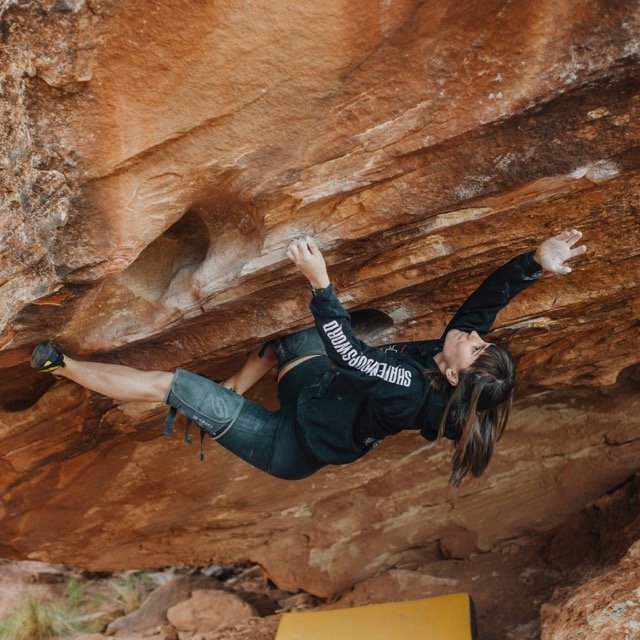

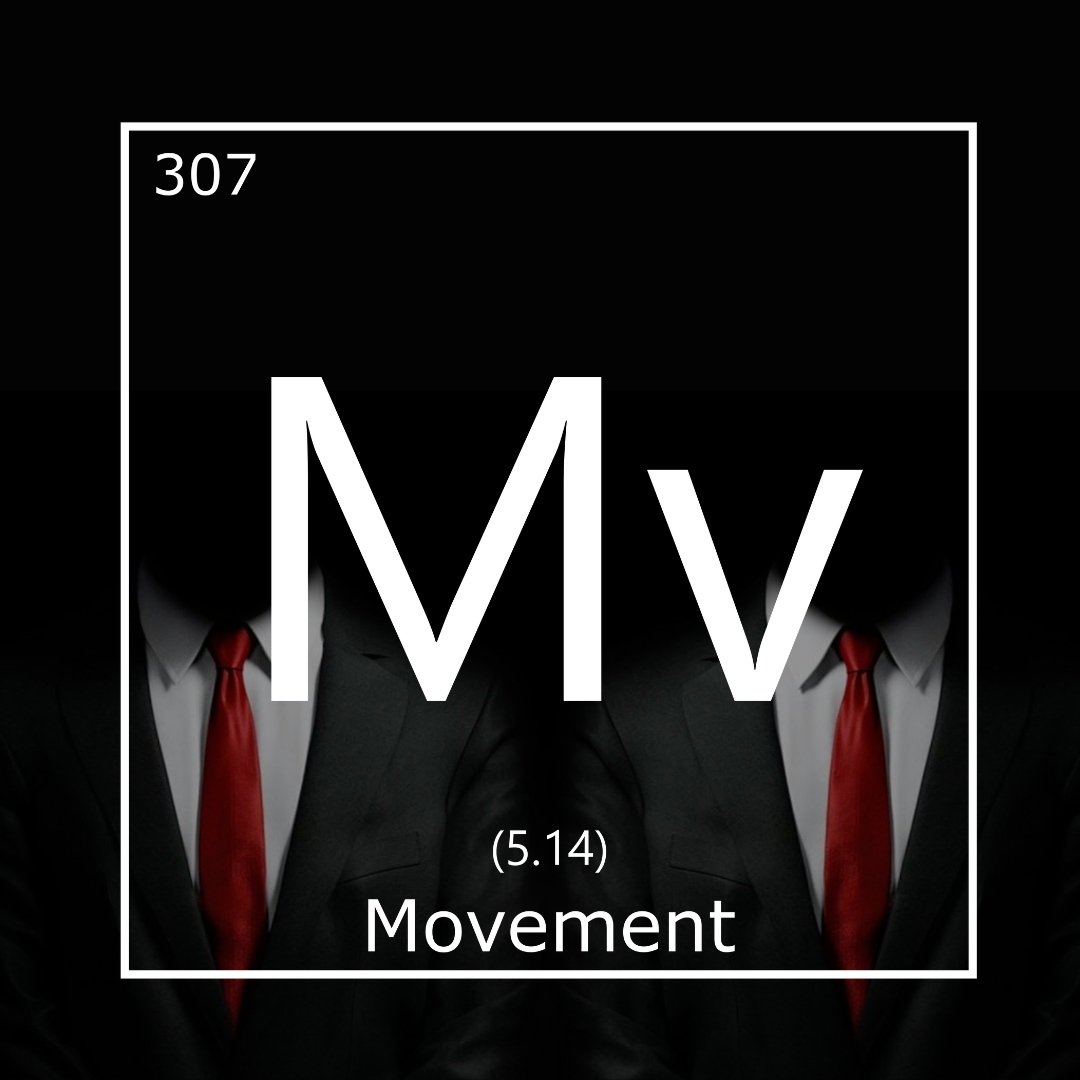
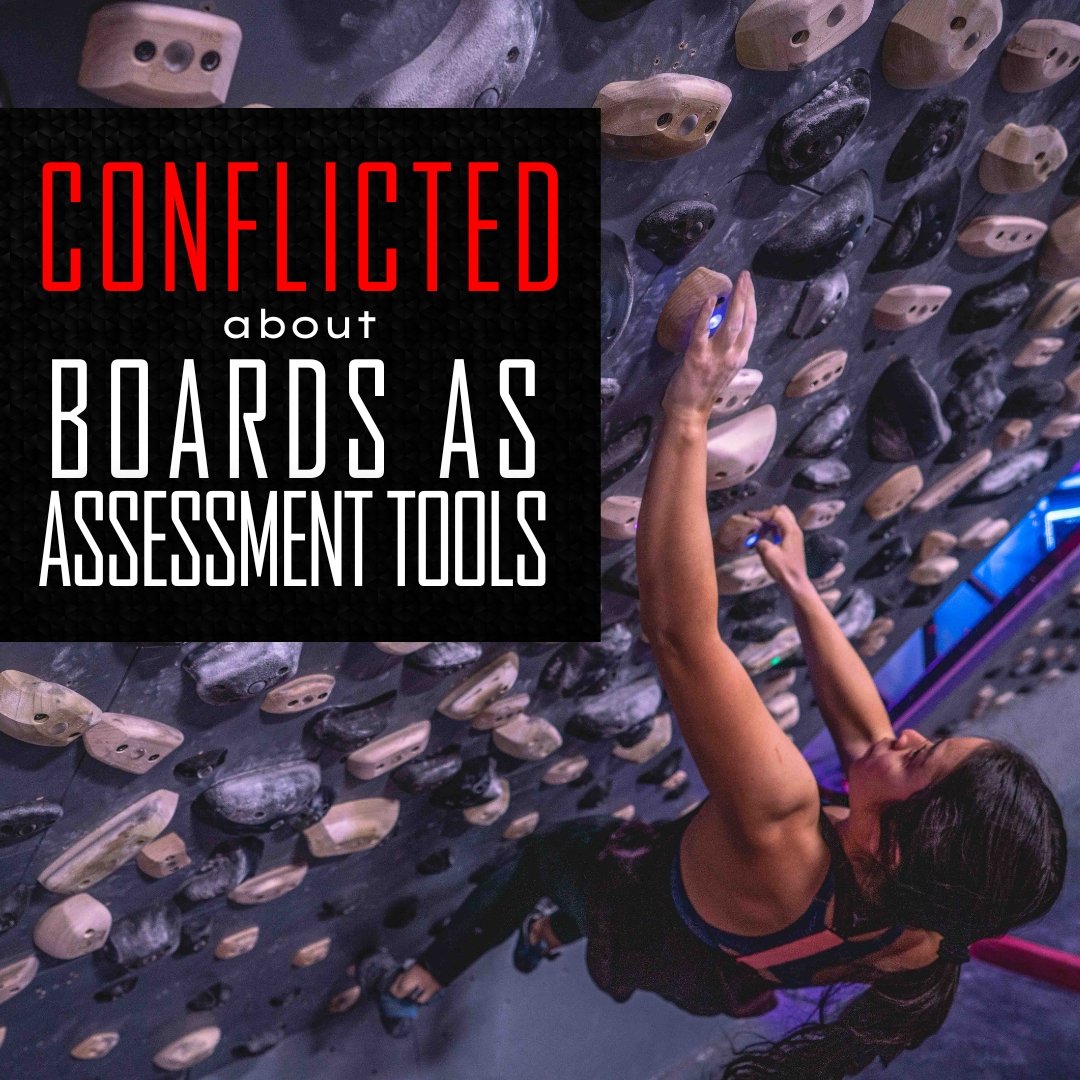
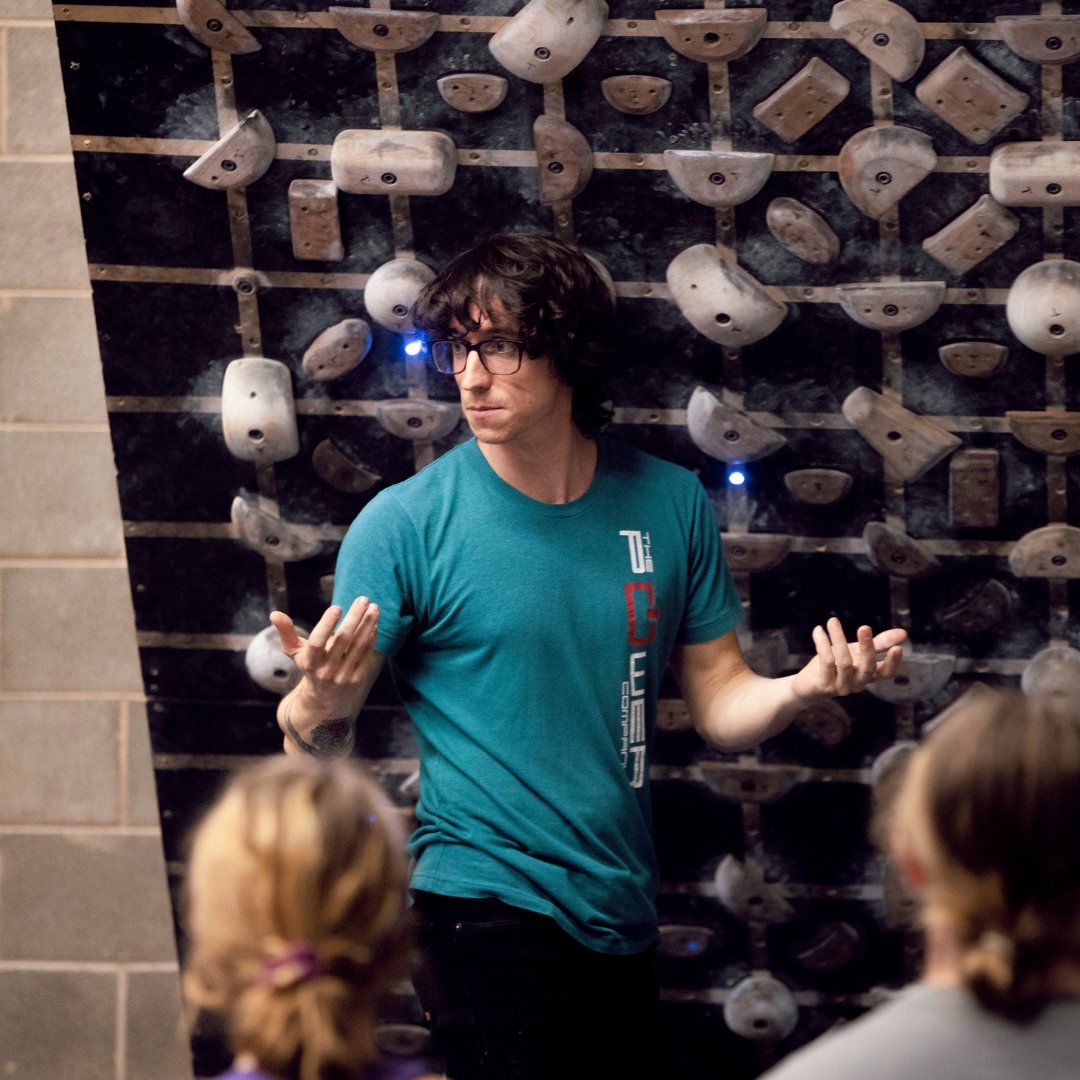
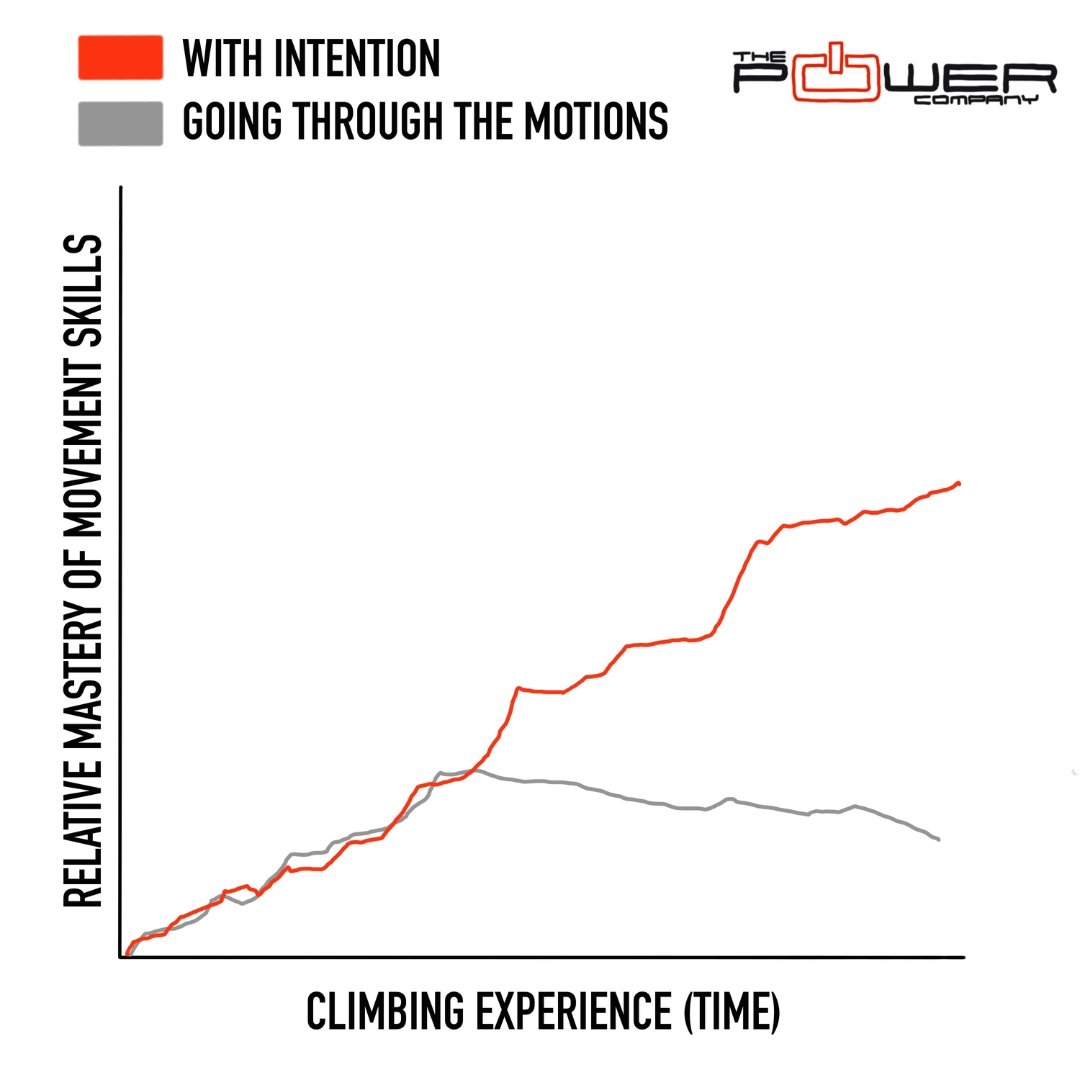


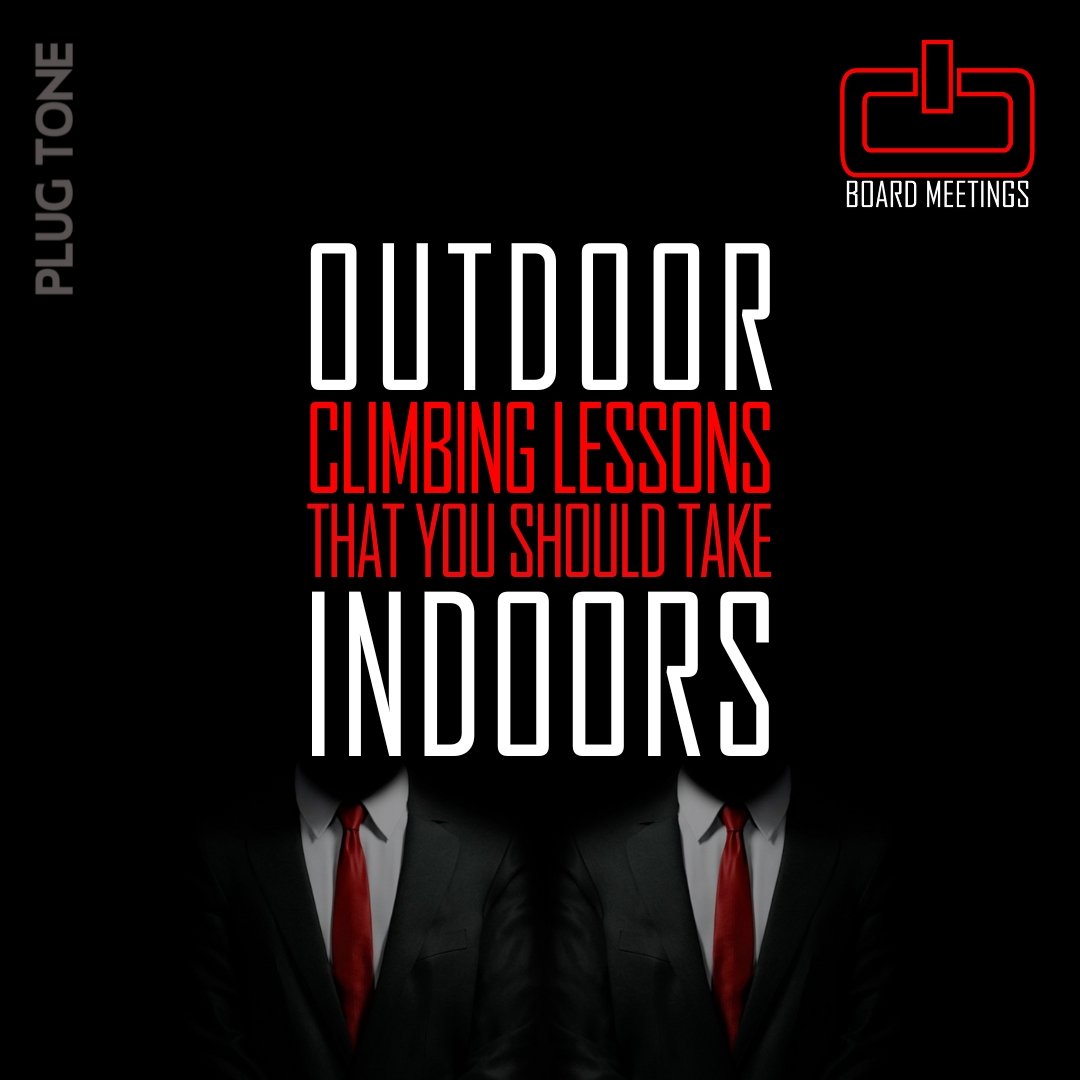







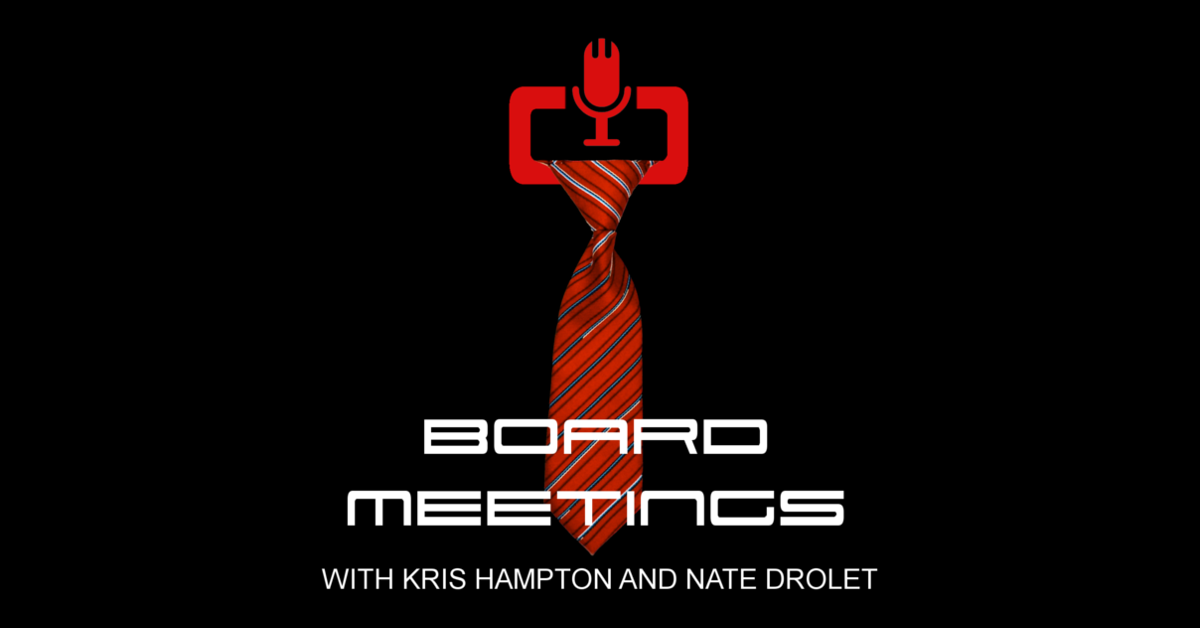








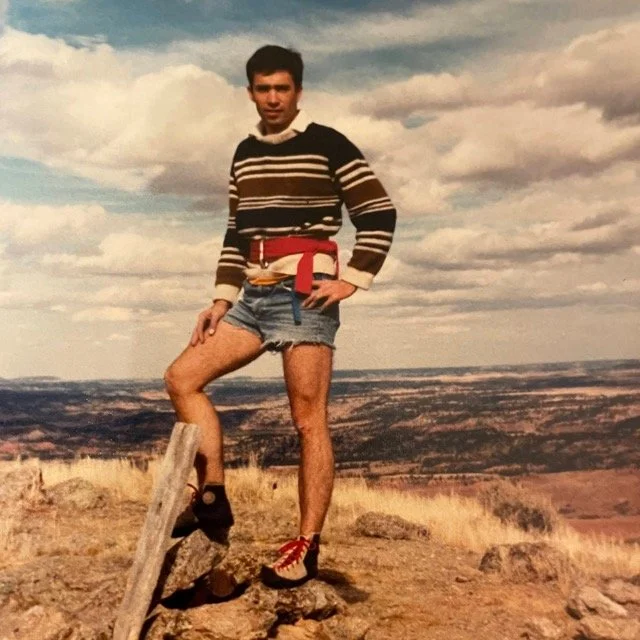



How do you know which is right for your situation?